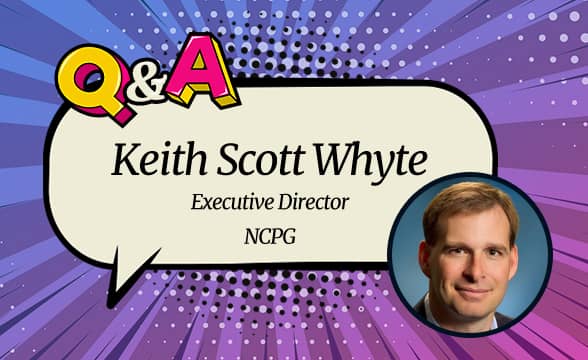The National Council on Problem Gambling (NCPG) has recently published its Recommendations on Partnerships Between Higher Education Academic Institutions and Sports Betting Operators. As the name suggests, the NCPG is looking into the issues of problem gambling in young adults who, the report argues, are more susceptible to the pernicious effects of gambling.
Therefore, institutions of higher learning and state governments have to come together and try and limit the potential rise of problem gambling in this audience, the report argues further.
Protecting young adults from the negative aspects of gambling has long been a state policy in many jurisdictions around the US which have legalized or considered legalizing sports betting. Some have banned wagering on college sports outright lest the temptation proves too difficult to resist for some athletes.
The NCPG’s guidance on how to address this issue rather than ignore it comes at the right time. Sports gambling in the United States is tipped to explode over the next several years and whether states regulate college sports betting or not, the offshore market has no qualms about running lines on student athletes.
Today, we have the opportunity to speak with NCPG executive director Keith Scott Whyte who can better walk us through the dangers of gambling addiction in college students and more importantly, what active steps can be taken to mitigate this risk.
Q: How serious is the danger of gambling addiction in young adults and particularly college students?
We know the younger a person starts gambling the more likely they are to develop a problem in later life, much like we see for cigarettes and alcohol. We also know that rates of risky behavior, including gambling, often peak in the 18-24 age range. So it is no surprise that college students may have up to twice the rate of gambling problems as the general public. With the widespread expansion of sports betting in the United States, college students will be exposed to much more gambling than ever before.
Q: What is the immediate recommendation of the report that should be implemented to help mitigate the risk of gambling addiction in young adults?
One of the most important is that colleges must integrate problem gambling into their student health and wellness efforts, alongside and equivalent to programs to prevent drug and alcohol abuse and improve student health and wellness.
Q: Which aspect of NCPG’s report would be the most challenging to implement?
Ironically it is probably getting state governments to commit to devoting 1% of their gambling tax revenues to mitigate harms created by legalized gambling. Despite almost 50 years of advocacy by NCPG, several states still do not provide any public funds to prevent or treat gambling addiction. These states, and the many who provide less than 1% of revenue, have abdicated their primary responsibility to protect the public health of their citizens.
Q: Apart from the temptation of a student-athlete to participate in gambling, do you reckon there are other dangers such as match-fixers approaching athletes? How can stakeholders fight back?
There are numerous concerns for college athletics about protecting the integrity of the game. As the volume of money bet on college sports (and the performance of these amateur athletes themselves) skyrockets with the expansion of legal sports betting, these concerns only magnify. Efforts to protect the welfare and mental health of college student athletes must be given the same attention as efforts to prevent match-fixing. And of course one of the biggest risks for match-fixing is likely a student athlete, college coach or referee with an out of control addiction to gambling.
Q: Do you think offshore sportsbooks will continue to be an issue and cause trouble in regulated markets?
Yes, because many people are reluctant to shift their accounts to new legal operators, particularly when they would now have to pay tax. Offshore operators are likely around for the long run, particularly because with no taxes or regulations they will always be able to offer customers things regulated sportsbooks cannot.
Q: Do you reckon protecting vulnerable individuals is a matter of proper regulatory norms or also the involvement of sports integrity companies such as Sportradar and Genius Sports?
Responsible gambling is a group effort that requires the involvement of all stakeholders, including the sports integrity companies. As discussed, gambling addiction is likely a significant risk factor for individual vulnerability to match fixing. And the insights companies like Sportradar and Genius have on gambling behavior would be quite helpful in the development of responsible gambling campaigns that are better tailored to reach high risk sports bettors with messages or features that are tuned to be more efficient and effective.
Q: What are the things that regulators, colleges and universities already get right in handling the issue of problem gambling in young adults?
There is broad acceptance that problem gambling is an important issue, which is good. But little interest so far in making the kinds of serious, systemic changes necessary to build comprehensive problem gambling prevention, education, treatment, research and recovery services specifically designed for young adults.
Q: What do you think will happen in 2021 that will help make college sports betting a little safer for next season?
I hope our guidelines prompt action by all stakeholders in college sports and betting, and that we see specific progress. I fear that it will take a gambling scandal involving a college student-athlete for attention to really focus on this issue.


